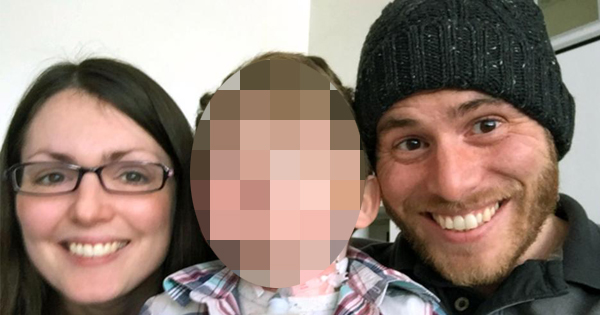In 2014, William Frost, four years old, was diagnosed with an ependymoma brain tumor. It’s a type of tumor that begins in the spinal cord or brain. Although there are treatments that can stop it, the little boy didn’t get any better after all of the surgeries and chemotherapy he received.
According to The Sun, William’s parents, Steve and Hillary, were informed that there’s nothing the doctors could do for their son. William is dying, but that doesn’t mean that they should stop looking for alternatives. That’s when they learned about cannabidiol, a type of cannabis compound that can allegedly cure cancer.
After a couple of months of treatment with the cannabis, William’s tumor had shrunk by two-thirds. Steve, 36 years old, and Hillary, 34 years old, lives in Newark, Nottinghamshire. Their child has reached a state and health where he was allowed to go to school part-time.
The parents decided to support the new research by medical professionals at Nottingham’s Children’s Brain Tumor Research Center to discover whether cannabidiol can actually reduce pediatric brain cells, according to The Sun.
Steve said, “In late 2013, we started noticing William’s head tilting to the right-hand side – no one had ever seen anything like it before. His balance was off and he started vomiting randomly so we took him to the GP.
“After a few days, they realized something was quite seriously wrong, and did an MRI scan, that’s when they discovered a tumor the size of a golf ball. It was a highly aggressive, grade-three tumor, and the prognosis from the doctors was very poor.”
William’s tumor came back after he had a surgery to remove it a year and a half ago. He also underwent nine months of chemotherapy after the surgery. Six weeks before radiotherapy, he was placed in intensive care. But, it didn’t really do anything to make the boy feel better.
Steve, who works as a civil engineer, said, “We couldn’t bear to accept there were no more options for William. We were desperate and willing to try anything – when we read the research on cannabis and tumors it gave us hope.
“It cost us £2,000 for a nine-month supply, but we wanted to make sure we were giving William the best quality stuff – we gave it to him diluted in water.”
Three months later, William’s parents began to point signs of improvement in the little boy. One of his recent MRI scans showed that his tumor had begun to shrink. The boy adheres to a low carb, high fat ketogenic diet that should help with destroying cancer cells, according to his parents’ claim.
Steve said, “The doctors were pretty shocked by the improvement. A year ago, he could barely walk, and now he’s full of life again – he’s even started going to school for half days.
“We don’t want to tempt fate, but his outlook is a lot more positive now – we don’t know if it’s permanent, but it’s given us a lot of extra, good-quality, time with William.”
William’s parents decided to share his story in order to raise awareness and get funded at least $100,000 for the research that they conducted.
Professor Richard Grundy, who’s consulting William by leading the research project, said, “Brain tumors are the biggest cancer killer of children in the UK but the disease receives less than one per cent of the UK’s cancer research funding.
“New ways to treat childhood brain tumors are urgently needed to extend and improve the quality of life in malignant brain tumor patients so we are excited at the prospect of testing the effect of cannabidiol on brain tumor cells.
“Increasingly families are using CBD, often at great expense, presently there is no evidence that it might be of benefit or even what dose to use or how often. It is therefore very important to obtain objective scientific evidence of whether CBD is active against children’s brain tumor cell lines.”
Although ependymoma disease doesn’t usually spread into other parts of the body, just the fact that it can settle on the brain and spinal cord is fatal enough. Some of the symptoms of the disease are headaches, seizures, confusion, drastic mood and personality changes, and difficulties with balance and coordination.





